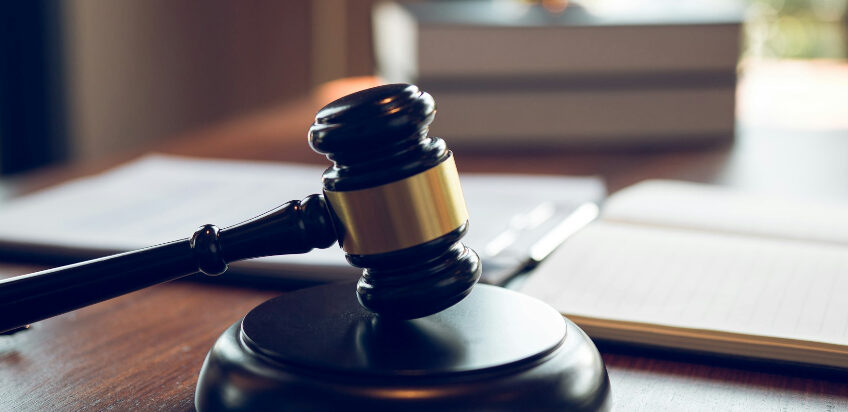A preliminary hearing is an essential part of the criminal justice process. It occurs after an arrest but before a full trial and serves to determine whether there is enough evidence for the case to proceed to trial. Understanding what happens during this hearing can help both defendants and their families feel more prepared for what’s ahead. Here is an overview of key steps and what you can expect at a preliminary hearing.
Purpose of a Preliminary Hearing
The primary purpose of a preliminary hearing is for the judge to decide if there is probable cause to believe that a crime was committed and that the defendant committed it. It is not a trial to determine guilt or innocence, but rather a safeguard to ensure that the case has enough evidence to proceed. If the judge finds insufficient evidence, the charges can be dismissed.
When a Preliminary Hearing Takes Place
Preliminary hearings usually occur shortly after the defendant’s arrest—typically within a few weeks. This allows the legal process to move forward quickly while ensuring that the defendant’s rights are protected. In some cases, the hearing can be waived, often as part of plea negotiations or because the defense agrees that there is enough evidence to go to trial.
What Happens During the Hearing
During the preliminary hearing, the prosecutor will present evidence and may call witnesses, including law enforcement officers or other individuals with knowledge of the case. The goal is to demonstrate that probable cause exists to move the case forward.
- Presentation of Evidence: The prosecutor will introduce physical evidence, witness testimony, or documentation that links the defendant to the alleged crime.
- Defense’s Role: The defense attorney has the right to cross-examine the prosecution’s witnesses and challenge the evidence presented. However, this is not a full trial, so the defense usually does not present its entire case at this stage.
- Judge’s Decision: After hearing the evidence, the judge will determine whether there is enough probable cause to proceed with a trial. If probable cause is established, the case moves forward. If not, the charges may be dropped or reduced.
Defendant’s Rights at a Preliminary Hearing
The defendant has several important rights during the preliminary hearing, including:
- Right to Counsel: The defendant has the right to be represented by an attorney. If the defendant cannot afford an attorney, one will be appointed by the court.
- Right to Cross-Examine Witnesses: The defense can cross-examine the prosecution’s witnesses, which allows the defense to challenge the credibility of the testimony and highlight weaknesses in the evidence.
- Right to Challenge Evidence: The defense can argue that the evidence presented is insufficient to establish probable cause or that it was obtained illegally.
Possible Outcomes of the Hearing
There are several possible outcomes of a preliminary hearing:
- Case Moves Forward: If the judge finds there is enough evidence, the case will move to trial, and the defendant may be formally arraigned on the charges.
- Charges Dismissed: If the judge finds insufficient evidence, the charges may be dismissed. However, this does not always mean the case is over. In some instances, the prosecution may refile charges if new evidence comes to light.
- Charges Reduced: The judge may decide that the evidence supports a less serious charge than the one originally filed, resulting in a reduction of charges.
Difference Between Preliminary Hearing and Grand Jury
In some cases, a grand jury might be used instead of a preliminary hearing. While both processes serve similar purposes, they differ in key ways:
- Grand Jury: In a grand jury process, a group of citizens reviews the evidence presented by the prosecutor to determine whether there is probable cause. The defendant and defense attorney are generally not present during grand jury proceedings, making it a less adversarial process.
- Preliminary Hearing: In a preliminary hearing, the defense has an opportunity to challenge the evidence, cross-examine witnesses, and be present during the entire process.
How to Prepare for a Preliminary Hearing
If you are the defendant, working closely with your attorney is crucial in preparing for a preliminary hearing. The attorney will:
- Review the evidence that the prosecution intends to present
- Prepare cross-examination strategies to challenge the credibility of witnesses
- Identify weaknesses in the prosecution’s case and highlight those to the judge
- Advise you on whether it’s beneficial to waive the preliminary hearing as part of a broader legal strategy
Conclusion
A preliminary hearing is a critical step in the criminal justice process, giving the court the opportunity to determine whether the case has enough evidence to proceed to trial. Understanding what happens during this hearing and working closely with legal counsel can ensure that your rights are protected.
Whether you are a defendant or supporting someone going through this process, knowing what to expect at a preliminary hearing will help reduce uncertainty and make the legal process more manageable.
